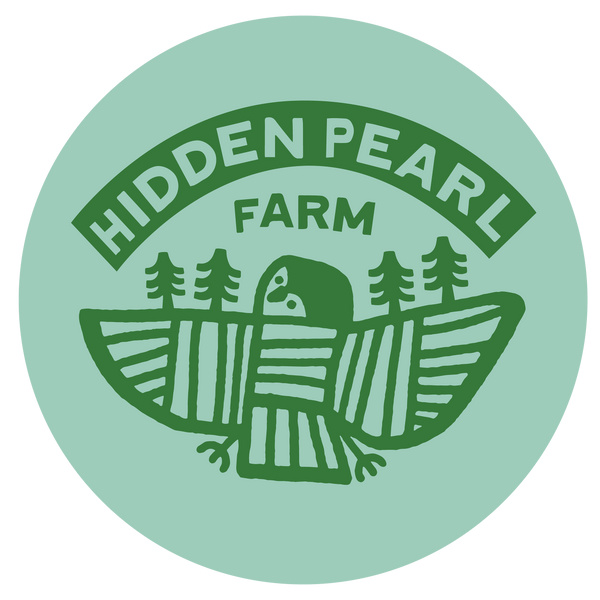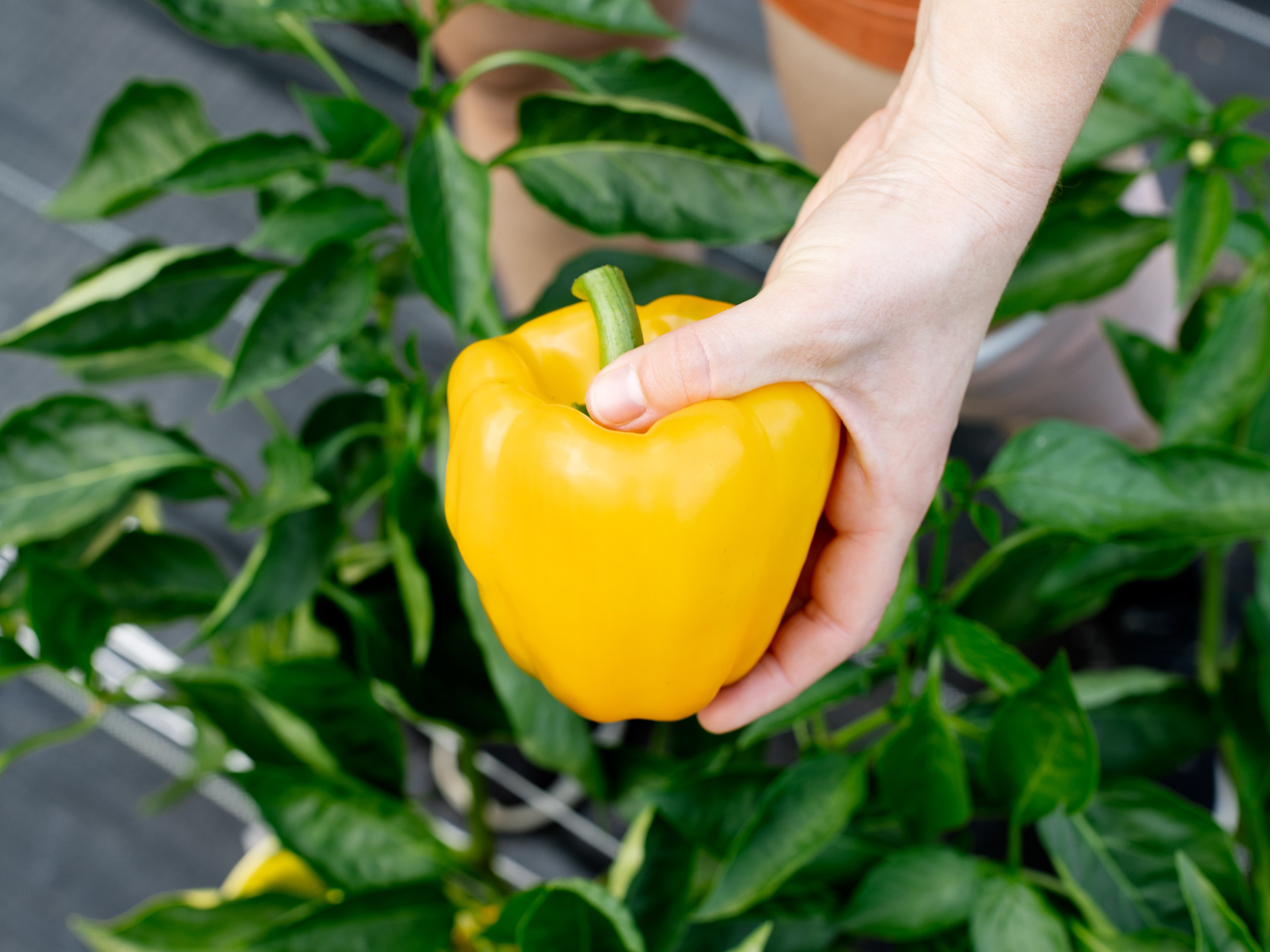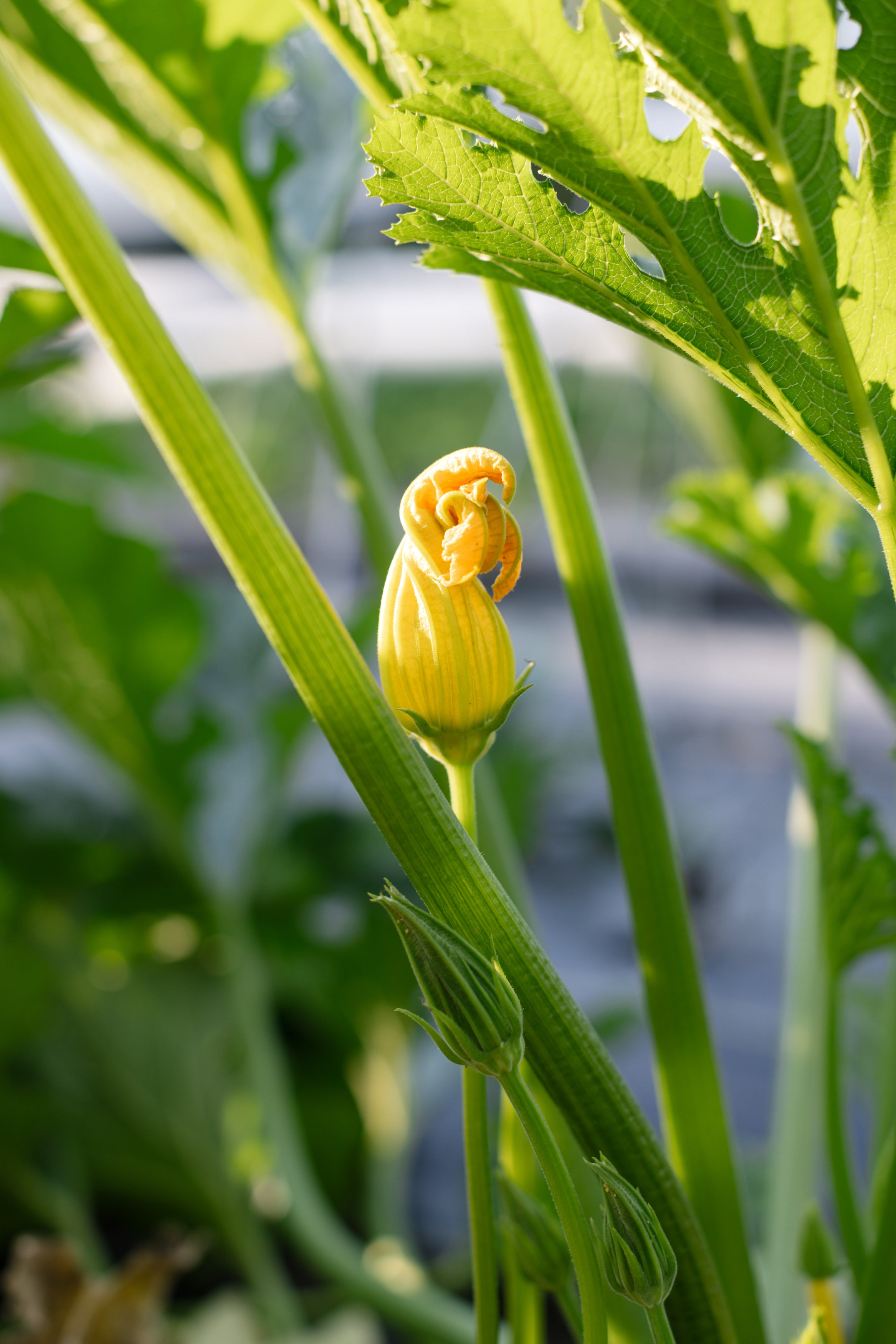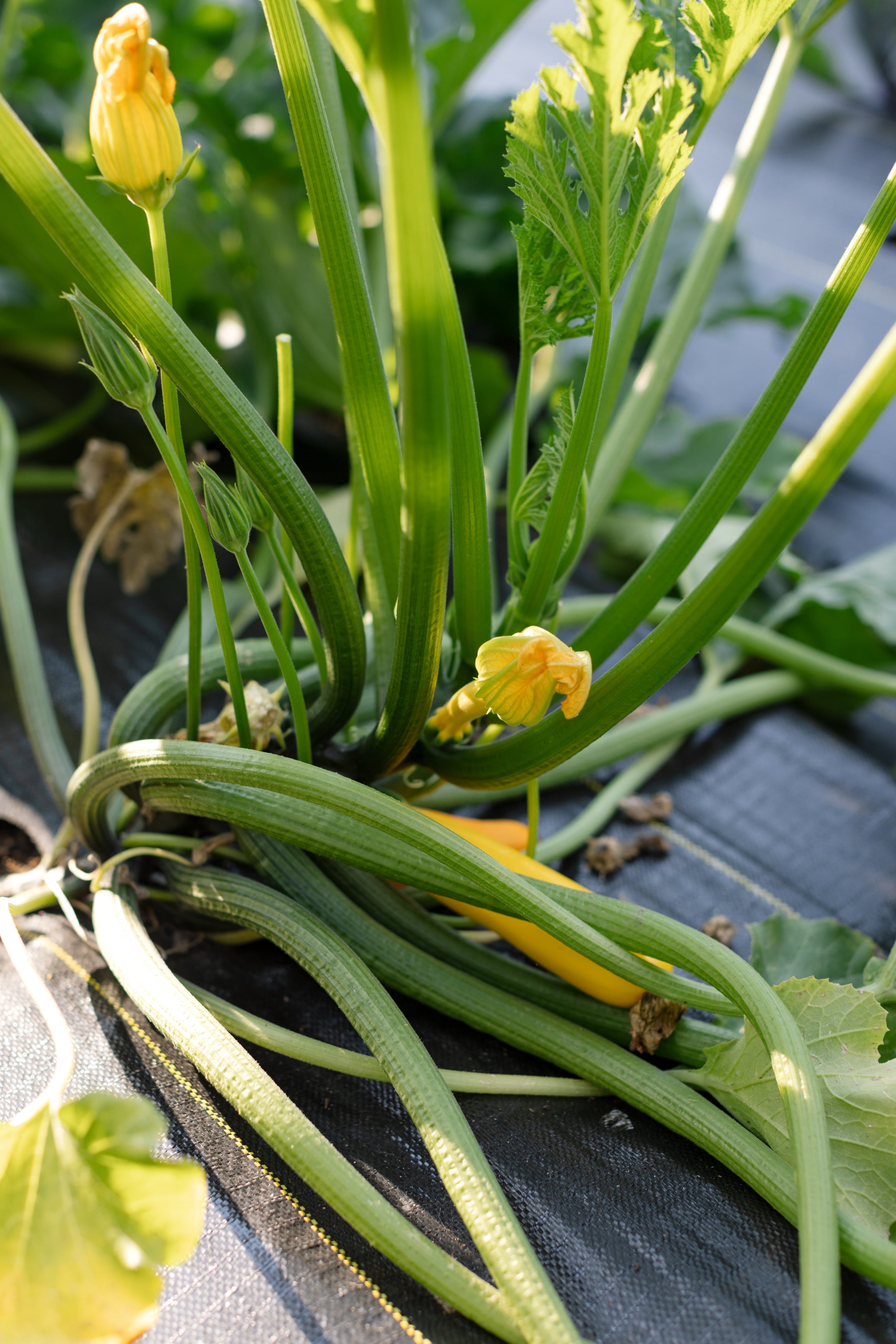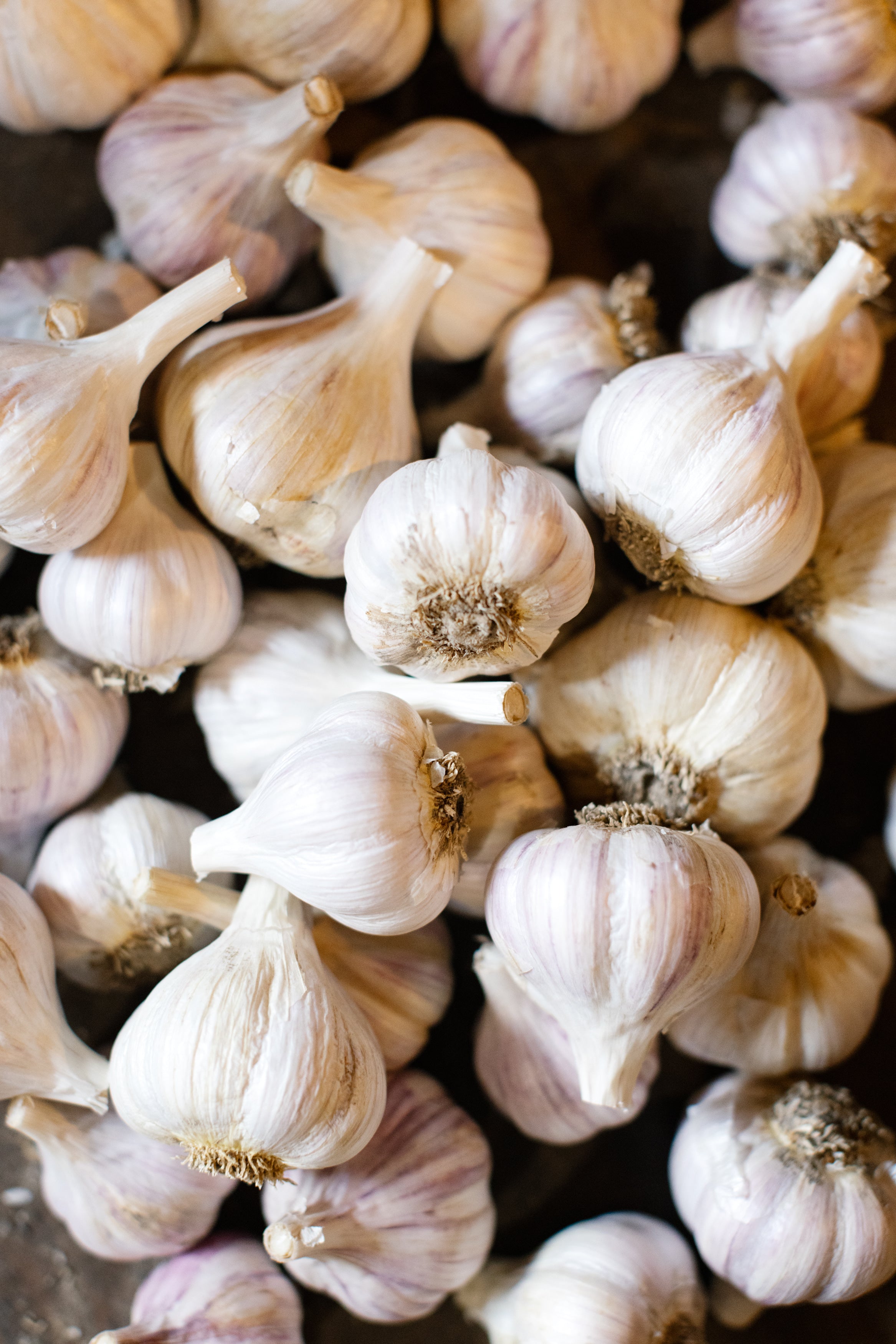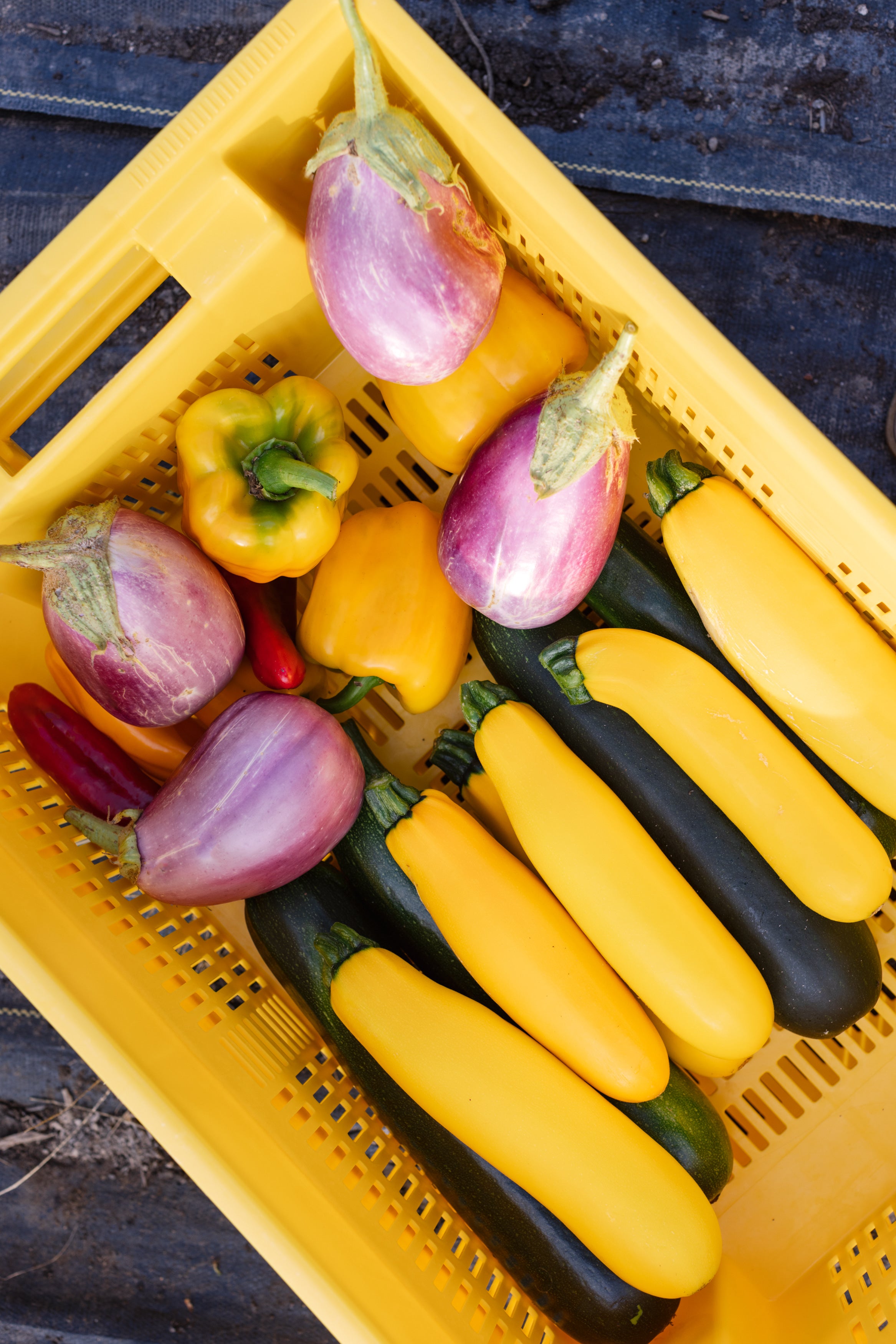
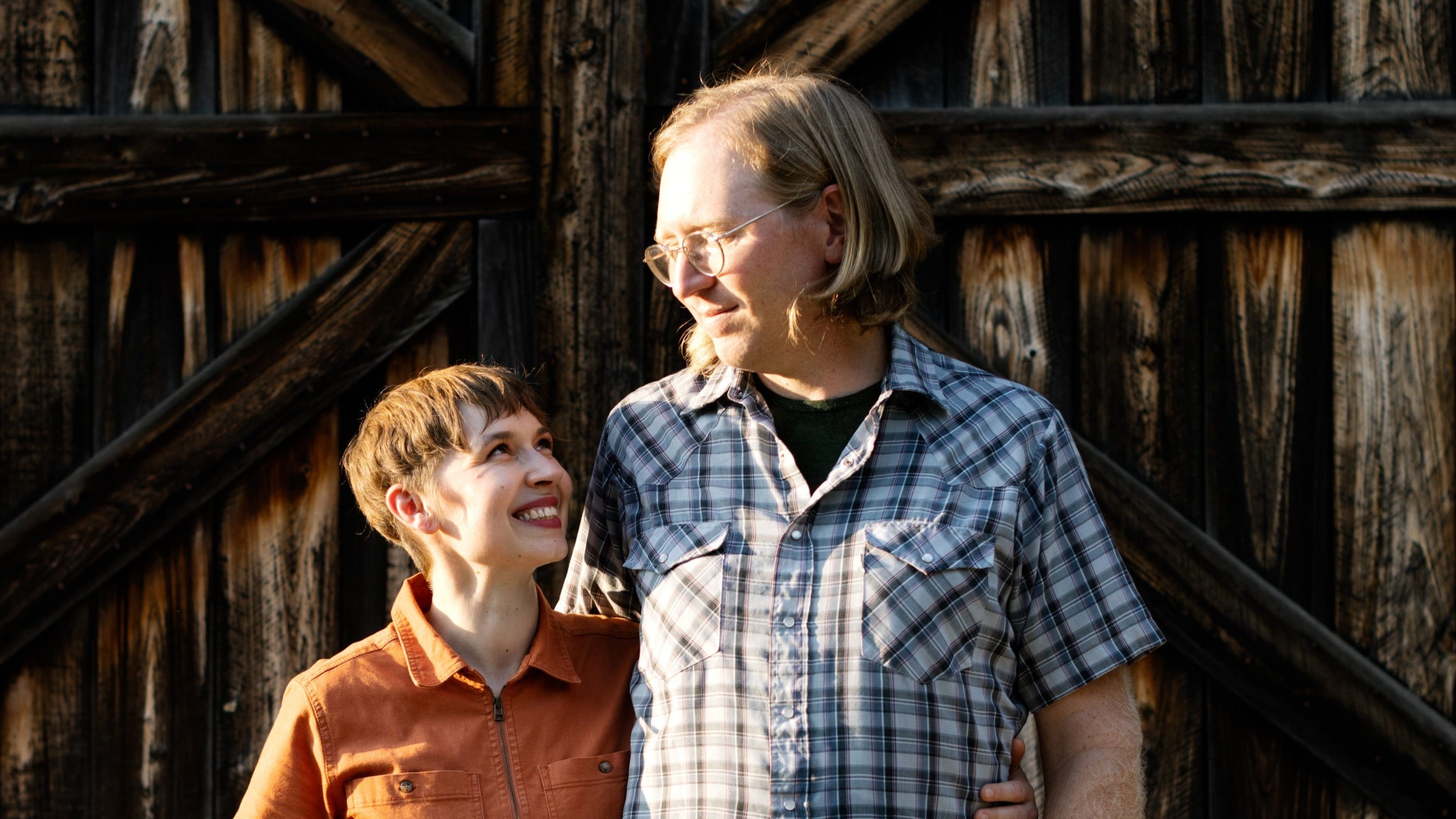
grown with love since 2023
read our story, meet our team, and discover what farming means to us
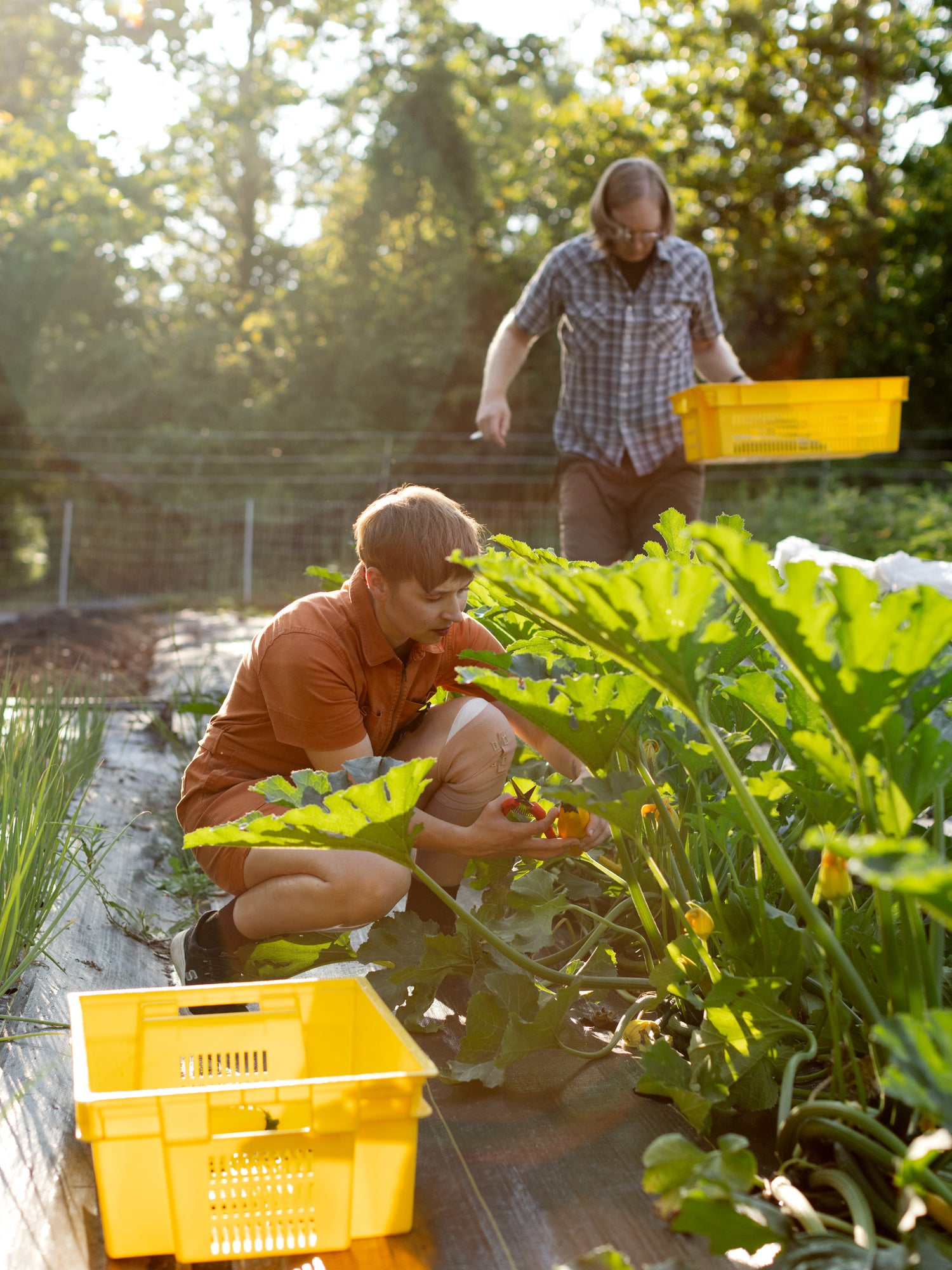
our story
Hidden Pearl’s seed was planted in 2017 when Will began a work-trade arrangement with Schacht Farm in Bloomington, managing inventory in exchange for a CSA share.
Then, when Will lost his job during the pandemic, he and Natalie began imagining a new life for themselves, where their love of growing, cooking, and sharing food could play a more central role.
In 2021 they started working at Freedom Valley Farm to gain experience on a vegetable production farm. After two years of on-the-job learning, they began the process of starting their own farm.
Founded in 2023, they spent their first season growing trials to share with friends & family and began selling to the public in 2024.
meet our team
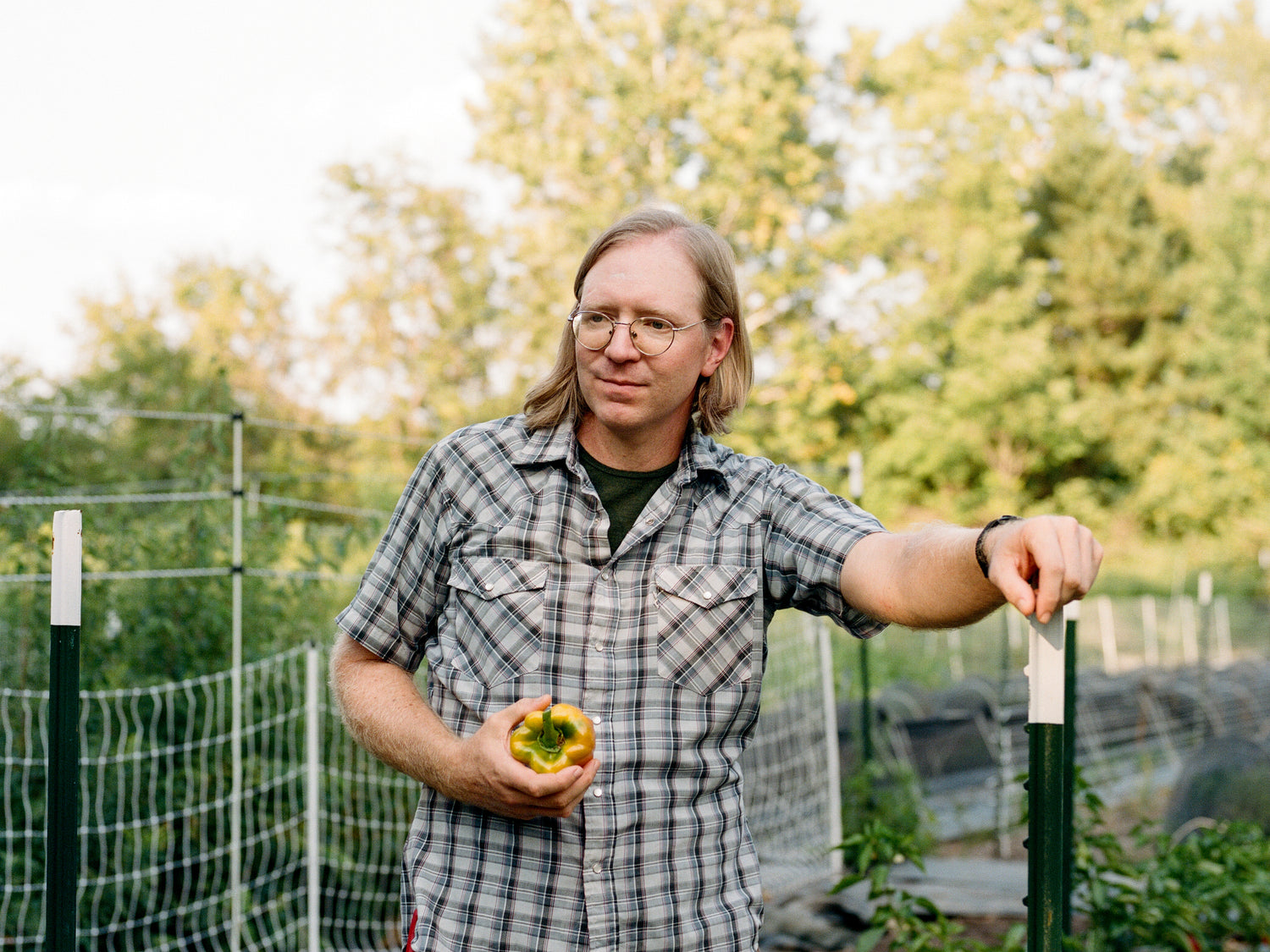
will
Farming brings together two of Will’s great loves, creative work and the natural world.
Will has always been an outdoor kid. He’s been camping regularly since he was a toddler, grew up learning outdoor skills in the Boy Scouts, worked summers as a backpacking guide through college, and flirted with studying ecology before eventually landing in art school and pursuing a career in photography.
For Will, growing food is a deeply creative process. In the same way that an artist uses the tools of their medium to express something meaningful, a farmer works with nature to create beautiful, delicious, and nutritious food.
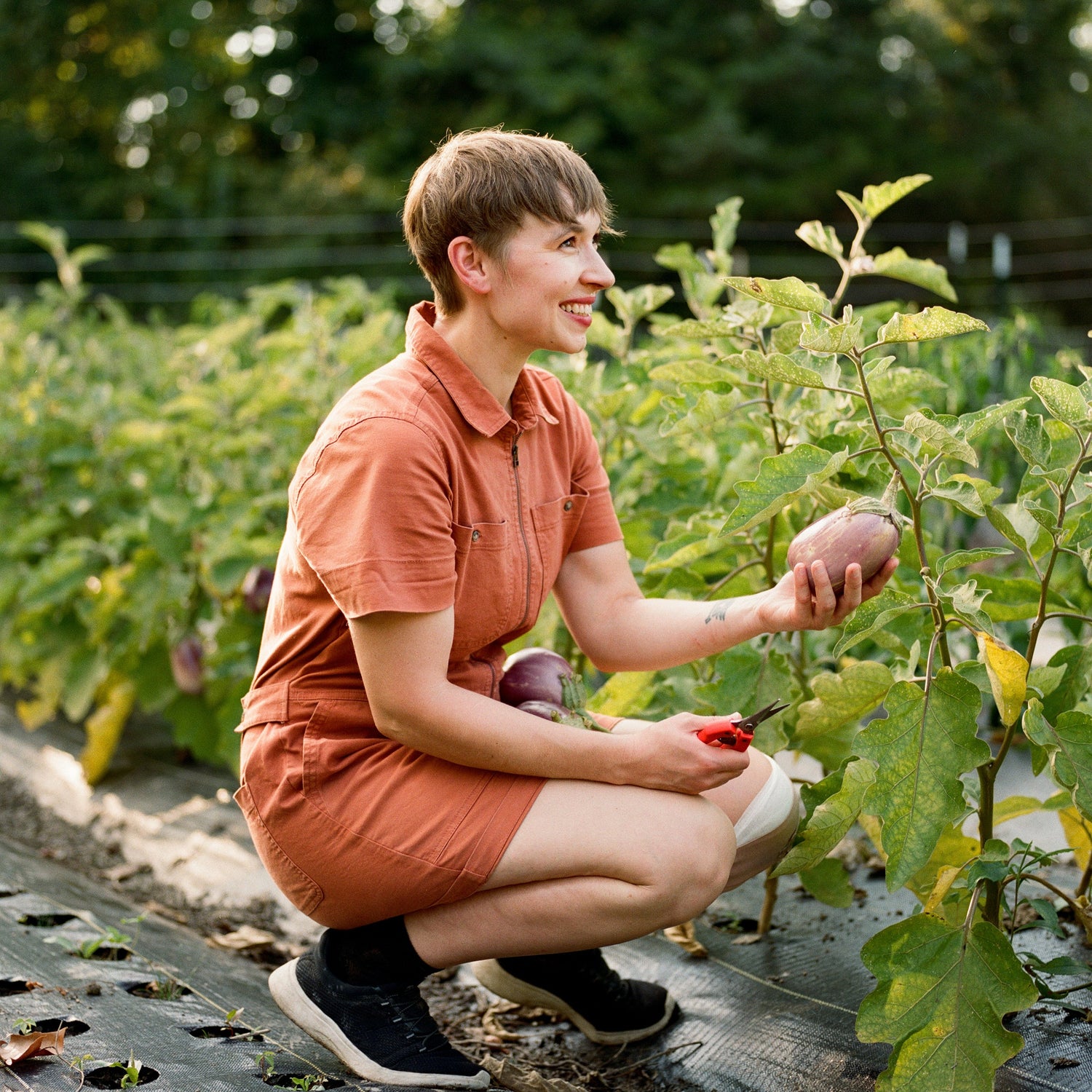
natalie
Natalie found her way to farming via the kitchen entrance. She loves to eat and cook, and appreciates the way that growing your own food can give you a better understanding of quality ingredients.
If you’re wondering how to use a particular vegetable, talk to her! She’d love to share an idea or five with you.
For Natalie, farming is about being a part of something much older and bigger than herself: the human practice and necessity of growing food to live.
In both the farm and the kitchen, she tries to abide by the values her Polish ancestors held dear: creativity under constraint, sharing abundance, and avoiding waste.
She’s passionate about helping everyone find the joy and confidence in cooking for themselves through sharing experiences and experimenting (go ahead, make a mess!).
discover more about hidden pearl farm
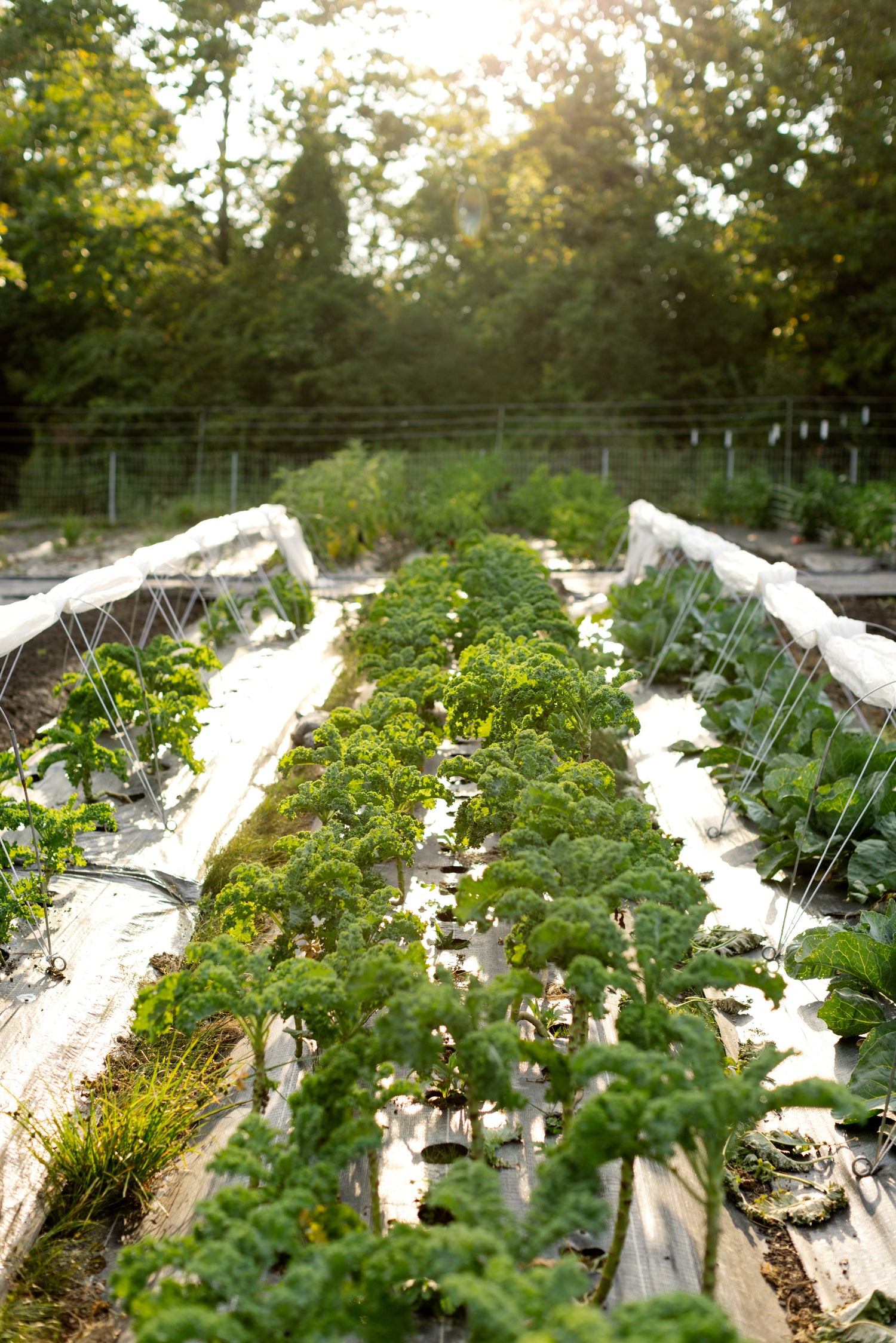
our land
Our relationship with this land starts in 1988, when Will’s parents bought a 10-acre strip of cornfield in rural northwest Clay Township, with plans to reforest it and build a home in the country. Before the house was built, they planted what is now a mature White Pine grove peppered with Cottonwoods, Maples, and other native hardwoods.
Around the same time, Carmel began to rapidly expand west past Meridian Street. As the suburbs grew, so did the trees, and by 2008 when subdivisions started to abut the property, the young forest provided a much-needed refuge for local wildlife.
But during that same time, a 2-acre block in front of the grove that was left wild as prairie grew overrun with honeysuckle, autumn olive, and other invasive plant species. These plants form a thick underbrush, blocking the light that allows native saplings to grow. Once those species are established, containing them can be a herculean task.
When we started planning our future as farmers in early 2021, the real estate market made the idea of acquiring farmland feel impossible. But after a while it dawned on us: to farm, we needed land to manage, and Will’s parents needed help managing their land. A complementary solution was right there.
In early 2023, we signed a lease for those two honeysuckle-infested acres, and we’ve been chipping away ever since. Our goal is to make a living as farmers while removing the invasive plants and continuing the work Will’s parents have done to maintain a healthy habitat for wildlife in a rapidly urbanizing area.
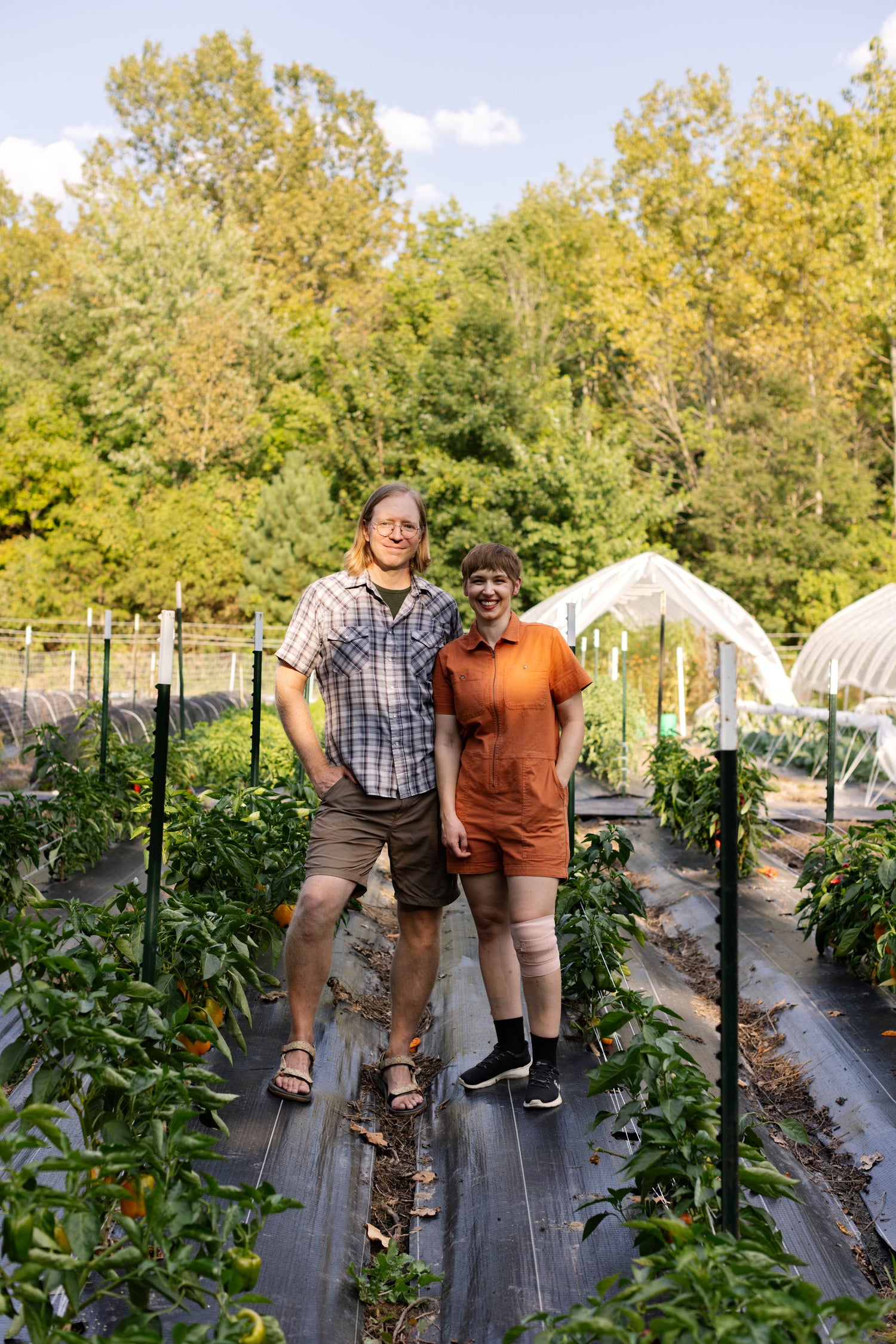
our methods
We are a small-scale operation using low or minimal tillage techniques. We grow in 50’ permanent raised beds, and once beds have been established, we only work the surface of the soil to incorporate amendments. We use organic methods, and our fertility comes from a combination of finished compost and a balanced OMRI-approved fertilizer. We monitor soil conditions through regular soil testing and adjust accordingly.
We manage pests & diseases primarily through prevention in the form of protected culture, insect netting, crop rotation, and beneficial inter-plantings, with targeted spraying of OMRI-approved insecticides and fungicides as a last resort.
As a new farm, weeds are one of our biggest challenges. Our plot was fallow for roughly 30 years before we took it over, and it was quite overgrown with honeysuckle, grapevine, and poison ivy. At present, keeping noxious and invasive plants from re-establishing is our #1 weed management priority. Any crop that is not direct seeded is planted into landscape fabric. Direct seeded crops receive weekly hand cultivation. We don’t love this reliance on landscape fabric because it’s a whole lot of plastic, but our trials showed us how easily invasives can re-establish without it. We plan to re-evaluate this approach annually.
To extend our growing season, we have two 50-foot caterpillar tunnels, and several NRCS-funded low tunnels. We also purchased two larger houses in the fall of 2024. We plan to incorporate one of those houses for our house crops in summer 2025 and the other as we grow and expand the business.
